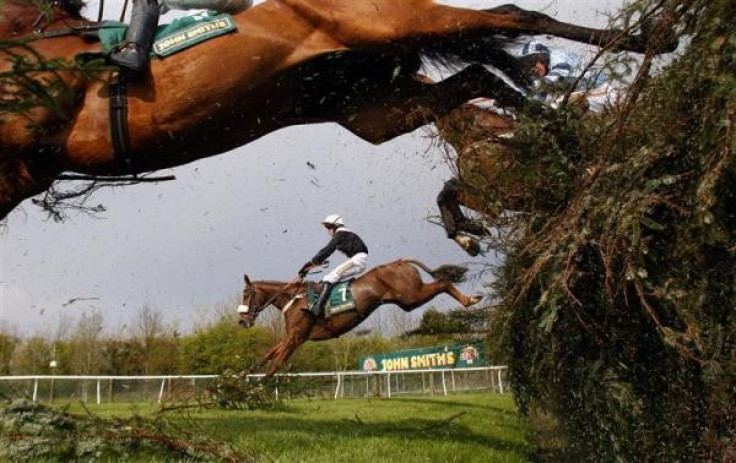Animal Rights Groups Attack Grand National Changes
Aintree and BHA alterations to the Grand National course have received vehement criticism from the RSPCA and Animal Aid
Aintree and British Horseracing Authority changes to the Grand National Course have been heavily criticised by animal rights groups the RSPCA and Animal Aid.
The longest running race in the National Hunt calendar has been marred with a string of fatalities since its inception in 1836, with notable jump Becher's Brook responsible for a large percentage of deaths in recent years.
The RSPCA had requested rigorous alternations to the course for 2013 following the death of two horses following this year's race, including pre-race favourite Synchronized, including the removal of Becher's Brook, where the former Cheltenham Gold Cup winner fell in April.

However, the leading animal welfare charity have reacted furiously to the BHA's refusal to withdraw the fence and decision not to decrease the 40-horse field.
"We remain concerned that two significant issues have not been addressed sufficiently by these changes," an RSPCA statement read. "These are the impact of Becher's Brook and the field size which remains the same.
"While the proposed improvement at Becher's by the additional levelling of the adverse slope on the landing zone can only be beneficial, we belief that the remaining many complexities of this fence mean that it continues to pose a serious and unacceptable threat to horse welfare.
"We will watch carefully the impact of this change at Becher's at the 2013 Grand National. This is the BHA's last chance to show that this fence can pose a fair and safe challenge to horse and jockey.
"Given the number of fallers and failures to complete the course, we do not accept that the field should remain at 40. Clearly many horses compete at the Grand National that cannot complete it."
The National has endured 68 casualties over its 176-year history, but the recent spate of deaths led strong calls for changes and sparked a race review from Aintree and the BHA.
The UK's largest animal right group, Animal Aid, has also reacted angrily to the decision not to remove Becher's Brook and horseracing consultant Dene Stansall has demanded the government intervene to protect the welfare of horses.
"Yet again, the BHA has reluctantly offered up a meagre list of modifications that fail even to acknowledge the lethal nature of this race," he said.
"They amount to little more than a cynical whitewash. The BHA refuses to acknowledge that the Becher's Brook fence was an instrumental factor in the deaths of three of the four victims over the past two years even though - despite reform - it is the race's most lethal obstacle and must be removed.
"And, it is time for the BHA to be stripped of its self-regulatory role. The government has to intervene to protect the welfare of the horses who are forced to compete in this appalling race."
The changes announced by Aintree and the BHA do take into account several of the RSPCA's requests following this year's race, which have included a reduction in the length of the race, which will now be four miles and three and a half furlongs, while the start will be moved 90 yards forward away from the grandstands.
Jamie Stier, Director of Raceday Operations and Regulation for the BHA, said: "We have worked closely with Aintree and consulted widely with jockeys, trainers and legitimate welfare organisations - the RSPCA and World Horse Welfare - on a range of elements related to the race.
"Our objective in recommending changes to the start is to identify ways in which we can create a calmer and more controlled environment for both horse and rider. We recognise that there is pressure and tension before the race and we want to alleviate that where possible.
"It is possible that a more controlled environment at the start, along with reducing the distance between the start and the first fence, could have the effect of reducing the early speed of the race. If this were to be the case, it would be an added benefit."
© Copyright IBTimes 2024. All rights reserved.






